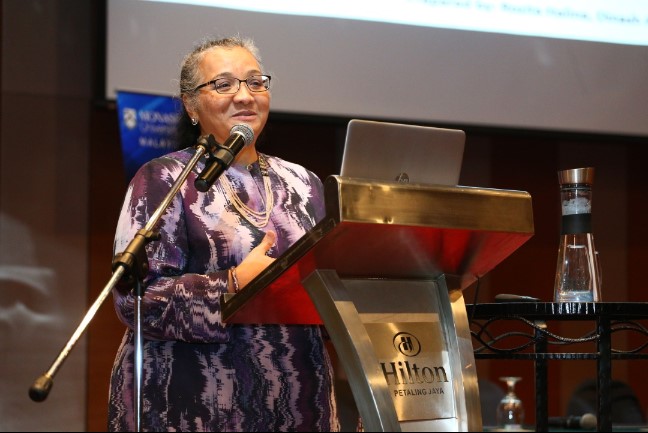PETALING JAYA, Nov 20 — The Ministry of Health’s (MOH) proposed drug price regulations are merely a “pilot” project that targets a limited number of single-source originator drugs, a senior official said.
“So if you talk about the impact to completely changing the whole industry of pharmacy, that’s not going to happen, because it’s a pilot and we need to see whether this makes sense and whether it achieves the outcome it’s intended to.
“It’s never going to completely wipe out the pharmaceutical industry,” Dr Rozita Halina Hussein, senior deputy director at MOH’s planning division, told the Monash Health Economics Forum 2019 here jointly organised by the Monash School of Pharmacy, Pharmaceutical Services Division, MOH, and the Pharmaceutical Association of Malaysia (PhAMA).
When asked about how much savings MOH projected patients to make from controlling drug prices, Dr Rozita said: “On a pilot scale, I don’t know what calculations my colleagues in my pharmacy division have looked it; it’s not designed to have a big impact anyway.”
She also said private health insurance has failed to negotiate cheaper prices.
“The actual payout for health care is only about 56 per cent to 72 per cent, so for every ringgit you pay for your premium, you’re only getting maximum 72 cents back in actual health care. Clearly there’s lots of market failure in the private health sector, and insurers are unwilling to negotiate major price discounts,” Dr Rozita said.
Private health insurance companies, she claimed, simply transferred higher prices of care into raising premiums instead of negotiating with hospitals for cheaper prices, as many of their customers are employers who dictate which hospitals they want their employees to visit.
“We also hear private health insurance are also making it even worse — they’re incentivising premium holders to go to public hospitals.”
PhAMA, which represents multinational pharmaceutical companies in Malaysia, yesterday reiterated its stance that imposing drug price ceilings will not improve affordability, but may instead cause the closures of community pharmacies and clinics in rural areas.
Private general practitioners (GPs) have previously said that impending drug price regulations may cause closures of their clinics because their business primarily relies on selling medicines, since their consultation fees are capped by legislation. The government also recently decided not to raise clinic family physicians’ consultation fees that have been capped at the same rate of RM10 to RM35 since 1992.
PhAMA previously revealed that MOH was planning to regulate the prices of 400 molecules in the first phase of price controls that targets innovative drugs, which it claimed only account for 3 per cent of Malaysia’s total health care cost.
PhAMA has instead proposed mandatory wholesale price declarations to MOH for all innovative and generic medicines available in Malaysia, beyond the 400 molecules.
Dr Rozita also clarified today that MOH was not looking at creating a voluntary health insurance scheme.
“As you know, we have a new government, as of last year, May of last year, and so we are waiting to see what plans this government settles on, what reforms they are thinking of.”
She further explained that the mySalam health protection programme — which is funded by Singapore-based Great Eastern Holdings and administered under the Finance Ministry’s purview — was not a national health insurance scheme.
“It’s a private health insurance scheme, and I would venture to say it’s a private insurance scheme, not even health, because the objective of mySalam was…for income protection, income security.”








